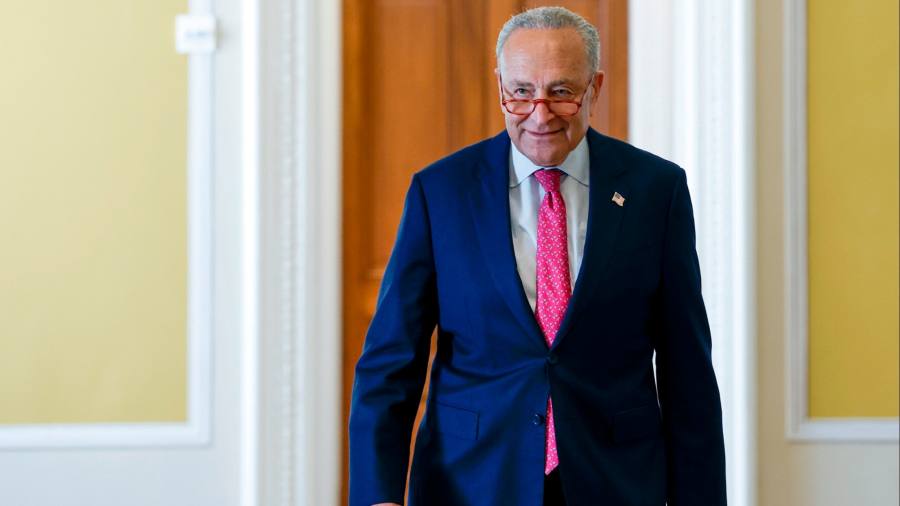The US Senate has approved a fiscal deal between the White House and congressional Republicans, ending a weeks-long political stand-off that risked triggering an unprecedented debt default in the world’s largest economy.
Lawmakers in the upper chamber passed the bill with overwhelming bipartisan support on Thursday evening, with 63 backing the legislation and 36 opposed. The House of Representatives had given its green light to the agreement on Wednesday night.
The bill now heads to President Joe Biden’s desk for his signature, just four days before the US Treasury projected it would run out of cash to pay all its bills. Such a scenario would have been a huge self-inflicted wound for Washington and dealt a potentially traumatic hit to the global economy and financial markets.
“Senators from both parties voted to protect the hard-earned economic progress we have made and prevent a first-ever default by the United States,” Biden said in a statement after the vote. “Together, they demonstrated once more that America is a nation that pays its bills and meets its obligations — and always will be.”
The agreement raises the US borrowing limit until 2025 and sets new caps on government spending for the next two years, putting more restrictions on US fiscal policy until at least after the next presidential election.
The Senate vote capped weeks of drama in Washington, including tense talks between Biden aides and negotiators for Republican House Speaker Kevin McCarthy, who reached an agreement last Saturday.
Biden and congressional leaders then embarked on a push in a highly polarised political climate to convince rank-and-file members to vote quickly to approve the deal.
The final Senate vote came after a series of amendments from lawmakers unhappy with certain terms of the bill failed to pass. Virginia Democrats Tim Kaine and Mark Warner sought unsuccessfully to strip a provision expediting the completion of a controversial gas pipeline.
Meanwhile, defence hawks led by Lindsey Graham, the South Carolina Republican, received critical assurance in the final hours from Senate leaders that the pact would not constrain the Pentagon’s spending needs, including what it might need to tackle crises in Ukraine, Taiwan or the Middle East.
The debt ceiling stand-off will prove less painful for investors than a similar political showdown in 2011 between former president Barack Obama and John Boehner, then-Republican Speaker of the House. That brush with default resulted in a downgrade of the triple A US credit rating by Standard and Poor’s and a sharp sell-off in equities.
But the past weeks’ political wrangling nonetheless highlighted the extent to which Republicans were willing to use the borrowing limit as leverage to extract policy concessions.
The White House and members of Biden’s Democratic party have explored ways to avoid future debt ceiling battles, including whether they have legal grounds not to respect the borrowing limit by invoking the 14th amendment of the Constitution.
Read the full article here




